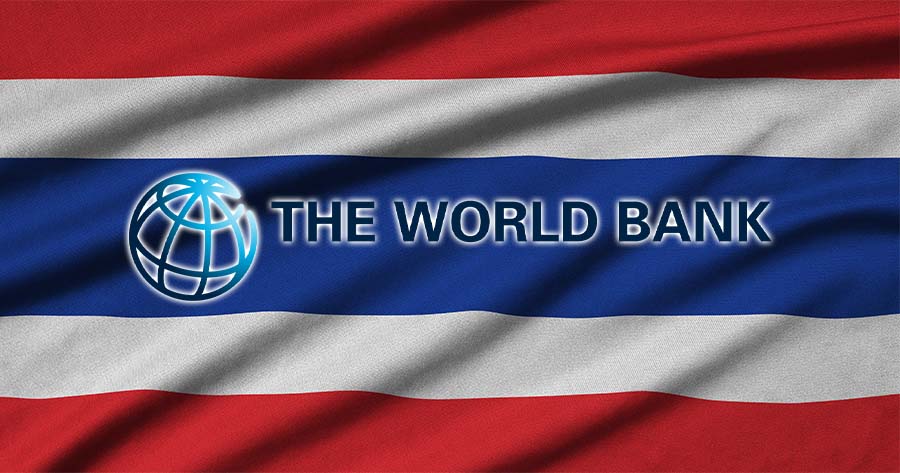In the new global economic prospects published by the World Bank in January 2022, the projection of Thai economic growth in 2021 and 2022 have been cut significantly due to the damage in tourism.
Following the forecast that the global growth will decelerate from 5.7% to 5.5% in 2021 and from 4.3% to 4.1% in 2022, the World Bank also cuts economic growth of Thailand as well. The international institution expects the Thai economy in 2021-22 to grow 1.0% and 3.9%, respectively, down by 1.2 percentage points each from the previous forecast in June 2021.
The World Bank stated that although aggregate emerging market and developing economies (EMDE) growth in 2022 is only slightly below previous projections (at 4.4% down from 4.5%), growth forecasts have been downgraded for about a third of EMDEs, and the recovery continues to show considerable divergence. Despite higher oil prices and a gradual rise in oil production, the near-term outlook for oil-exporting EMDEs remains mixed, reflecting the need for earlier policy support to be unwound (Azerbaijan, Russia) or for sharp fiscal consolidation (Angola, Bolivia, Colombia).
For other EMDEs, the outlook is dampened by sustained weakness in international tourism (the Maldives, the Philippines, Thailand), armed conflict (Ethiopia), a sharp rise in policy uncertainty (Turkey), and an escalation in geopolitical tensions (Belarus). In all, output this year is expected to remain below 2019 levels in about a third of EMDEs—mostly tourism-reliant economies or small states.
However, the World Bank noted that for the economies that rely heavily on tourism like Thailand, the recovery of output to the pre-pandemic level is not expected until 2023.
As for the fiscal policy support in Thailand, the World Bank expects it to be gradually unwinded.





